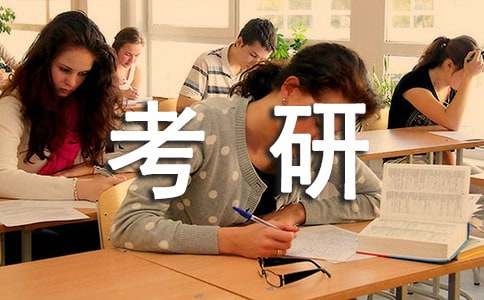2013考研英语之被动语态翻译法
1) 变为汉语的主动形式。Eg:

It leads the discussion to extremes at the outset: it invites you to think that animals should be treated either with the consideration humans extend to other humans, or with no consideration at all.这种说法从一开始就将讨论引向两个极端,它使人们认为应该这样对待动物:要么像对待人类自身一样关切体谅,要么完全冷漠无情。
2) 译成具有被动意义的汉语结构。
Eg:
For all the help this computer may provide, it should not be seen as a substitute for fundamental thinking and reasoning skills.尽管计算机可以提供那么多的帮助,它却不应该被看作是基本的思维和推理技巧的替代物。
Eg:
How well the predictions will be validated by later performance depends upon the amount, reliability, and appropriateness of the information used and on the skill and wisdom with which it is interpreted.这些预测将在多大程度上为后来的表现所证实取决于所用信息的数量、可靠程度、适宜程度以及用来解释这些信息的技巧与才智。
3) 增添“人们”、“大家”等适当的词做汉语译文的'主语。
Eg:
And it is imagined by many that the operations of the common mind can be by no means compared with these processes, and that they have to be acquired by a sort of special training.许多人认为普通人的思维活动根本无法和科学家的思维过程想比较,他们并认为这些思维过程必须经过某中专门训练才能掌握。
Eg:
During this transfer, traditional historical methods were augmented by additional methodologies designed to interpret the new forms of evidence in the historical study.在这种转变中,历史学家研究历史时,那些解释新史料的新方法充实了传统的历史研究方法。
分译法
英语长句子比较多,汉语句子相对而言比较短。在翻译时可以改变原文结构,把原文的某个成分从原来的结构中分离出来,译成一个独立成分、从句或并列分句。
Eg: It has been rightly stated that this situation is a threat to international security.这个局势对国际安全是个威胁,这样的说法是完全正确的。
合译法
和分译法不同,合译法是将不同的句子成分组合在一起,使其更符合汉语的表达方法。Eg:
Science moves forward, they say, not so much through the insights of great men of genius as because of more ordinary things like improved techniques and tools.他们说科学的发展与其说源于天才伟人的真知灼识,不如说源于改进了的技术和工具等等更为普遍的东西。(将英语的一个句子结构翻译成一个词组)
Eg:
When that happens, it is not a mistake: it is mankind’s instinct for moral reasoning in action, an instinct that should be encouraged rather than laughed at.这种反应并不错,这是人类用道德观念进行推理的本能在起作用。这种本能应得到鼓励,而不是遭到嘲笑。(When that happens, it is not a mistake原来是两个句子,现在组合成一个简洁的汉语句子。)
顺序调整法
一般来说,翻译时应该按照句子原来的顺序进行,但由于英汉两种语言中定语、状语和一些其他成分的位置不完全相同,翻译时需要做一定的调整(例如采用倒译法),使其更符合汉语的习惯。
Eg:
The true measure of the danger is represented by the hazards we will encounter if we enter the new age of technology without first evaluating our responsibility to environment.如果我们进入了技术新时代而不首先估价我们对环境所负的责任,我们将遇到公害,这些公害将表明危险真正达到了什么程度。
Eg:
That our environment has little, if anything, to do with our abilities, characteristics and behavior is central to this theory.这种理论的核心是,我们的环境同我们的才能、性格特征和行为即使有什么关系的话,也是微不足道的。(原来的谓语,在译文中变成了在前的主语。)
【考研英语之被动语态翻译法】相关文章:
考研英语翻译难点之代词的译法10-02
科技英语翻译中被动语态的翻译法概述10-10
考研英语英译汉翻译技巧被动语态的翻译09-20
2014考研英语翻译难点之代词的译法10-02
考研英语翻译练习法02-09
考研英语翻译增补法详解之增加词汇05-18
2012年考研英语翻译重点之反译法12-13
考研英语翻译法则之翻译04-05
2013考研英语翻译重点解析之反译法02-01